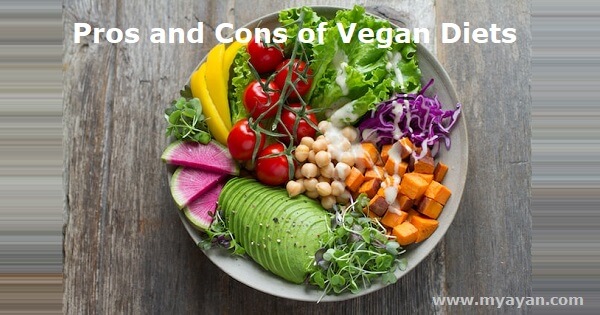Vegan Diets are very trendy nowadays. People are adopting this diet to stay fit and for a good cause. No animal or environmental concerns are there to worry about when you switch to veganism. Be it Ariana Grande, Virat Kohli, or Serena Williams, many celebrities have something unique to say about their eating habits. That's why many US citizens turn vegan though just 5% of the total population is vegan. So whether you are planning to switch or are still dubious about it, these vegan diets will undoubtedly be helpful.
A vegan diet is a diet in which you avoid animal food or any products prepared through them. Especially green vegetables and dry fruits are included in this diet. Fat does not accumulate in the body by taking a vegan diet, due to which the person remains healthy for a long time. Let's be clear; a vegan diet differs from a vegetarian diet because dairy products are not included. You can take grains, seeds, fruits, vegetables, and dry fruits in this diet.
Your reasons for choosing a vegan diet will determine which benefits are most important to you. The pros of vegan diets are significant, regardless if you decide it for ethical, environmental, or health reasons.
Studies show that a vegan diet can help reduce the risk of cancer. Plant-based diets are rich in antioxidants, which prevent the production of free radicals in your cells. Free radicals damage your DNA and lead to cancerous cell growth.
A vegan diet is naturally low in calories and higher in fiber when compared to other diets, making it an effective weight-loss tool. Additionally, you're likely to take in fewer saturated fats with a vegan diet since most animal products are high in saturated fat.
The American Heart Association recommends eating more plant-based foods for improved cardiac health as they are typically lower in cholesterol than animal products. Eating vegan helps reduce bad cholesterol and blood pressure, leading to a healthier heart.
Eating a vegan diet can also help alleviate symptoms of depression and anxiety. Plant-based foods contain vitamins, minerals, and other essential nutrients that improve your mood.
Eating meat is one of many ways to get iron and protein. If you're vegan, you can still get all the essential nutrients your body needs. Plant-based foods are a great source of minerals like calcium, magnesium, zinc, copper, and iron. Additionally, nuts and legumes provide plenty of protein for vegans. If your body lacks these vital nutrients, the pros of vegan diets are considerable.
Although there are many potential benefits, you must consider some cons of vegan diets before making a switch.
Eating vegan requires plenty of meal prep time since you have to carefully read labels, find recipes that work within your dietary restrictions, and ensure you have access to enough fruits and vegetables.
If you're not careful to include all essential nutrients in your meals, vegan diets can cause nutrient deficiencies. Animal products like meat and dairy contain essential vitamins and minerals like Vitamin B12 and iron which cannot be obtained from plant sources.
If you're invited to a dinner or party, it may be challenging to follow your vegan diet while eating out with family and friends. Often, there will need to be more vegan options available at restaurants, so you have to stick to limited choices.
Depending on where you live, organic produce can become expensive and hard to find for vegans. It can be incredibly pricey if you are buying organic for all the fruits and vegetables that go into your meals.
When following a vegan diet, it can be easy to fall into the same meal routine as plant-based foods sometimes have different textures and flavors than animal products. This can lead to boredom with your meals.
Conclusion
A vegan diet is a great way to improve your health in multiple ways, but it's essential to understand all the pros and cons of veganism before you make a switch. Make sure to include all essential nutrients like proteins, minerals, and vitamins in your meals for optimal results. Additionally, meal planning is vital if you want to stay committed to this lifestyle. With enough dedication and creativity, vegan diets can be delicious and satisfying while keeping your body healthy and strong.

Yes, when done correctly, a vegan diet can be very healthy. It is vital to ensure that your meals contain all essential vitamins and minerals, as some nutrients are harder to obtain on a vegan diet.
While meal prep may take more time than other diets since you must read labels carefully and find recipes that fit your dietary restrictions, many people find following the vegan lifestyle quite enjoyable and easy. With enough planning and creativity, you can make delicious plant-based meals that will keep you satisfied!
If done incorrectly, it is possible to develop nutrient deficiencies on a vegan diet. To avoid these health risks, ensure that you are eating a balanced diet with plenty of fruits and vegetables and fortified foods like cereal and almond milk. Additionally, talk to your healthcare provider about taking any vitamin supplements if necessary.
1. Try out new recipes and experiment with different ingredients.
2. Follow vegan-focused social media accounts for inspiration.
3. Reach out to other vegans and share recipes or advice.
4. Make meal planning easier by using apps or weekly meal prep plans.
5. Find vegan-friendly restaurants or food festivals to try out new dishes.